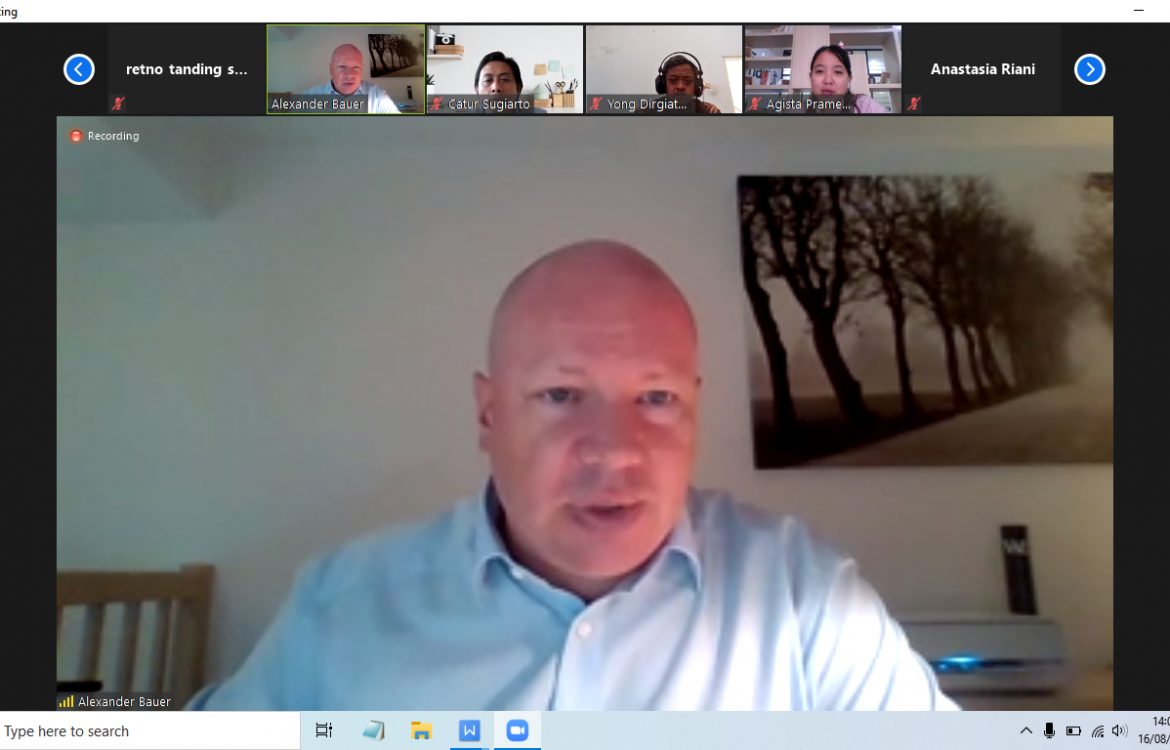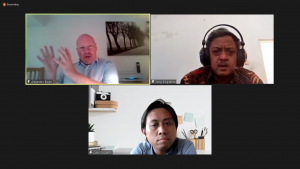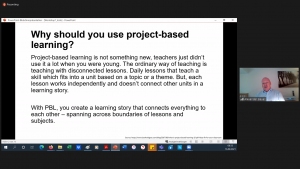
Management Study Program FEB UNS Invites Dr. Alexander Bauer in Technical Assistance: Project-Based Learning Method
The Management Study Program, Faculty of Economics and Business, Universitas Sebelas Maret (FEB UNS) Surakarta invited another international academician in a series of activities for the 2021 Program Kompetisi Kampus Merdeka (PKKM), Monday (16/8/2021). The event, which was attended by FEB UNS faculty members, invited Dr. Alexander Christian Bauer from the Wittenborg University of Applied Science.
Starting the presentation of the material, Dr. Bauer explained the definition of Project-Based Learning (PBL), the forms of PBL implementation in the teaching and learning process at universities, and examples of PBL that he has applied. In general, Dr. Bauer explained that PBL is a form of learning method in which students are encouraged to identify problems that occur in the real world and find solutions to these problems.
 Through this method, students are required to conduct in-depth research to be able to answer complex questions and collaborate in teams to solve problems and find solutions.
Through this method, students are required to conduct in-depth research to be able to answer complex questions and collaborate in teams to solve problems and find solutions.
The PBL method no longer relies on lectures delivered by lecturers but encourages students to think critically through stories or problems related to the theories that students learn. In addition, the advantages of PBL include providing opportunities for students to use technology in the process of completing projects, introducing lifelong learning techniques to students, introducing students to problems that occur in the real world, developing skills, creativity, and imagination of students, and motivate students to be more involved in the active learning process.
“Student projects help them (the students) to review the lecture material they have received and prepare them for the next material,” said Dr. Bauer.
The material is followed by examples of project-based learning applied by Dr. Bauer, which can generally be divided into two criteria. An integrated project (implemented within the course) and an external project which does not include in a course. Each project implemented begins with the delivery of general project information related to business conditions and problems that arise, followed by project research questions, where the level of difficulty is adapted to the semester. To answer these questions, students must conduct research on the problems that occur.
Students are divided into small groups that include several special roles such as team leader, research department, secretary, and finance department. The team that has been formed then carries out a series of projects assisted by the lecturers of related subjects to provide suggestions and input. At the end of the session, the student team is required to make a final report and present their work.
The event, which was attended by more than 30 participants, went interactively with a question and answer session between the lecturers of the Management Study Program FEB UNS and Dr. Bauer.
Reporter: Aulia
Editor: Humas FEB

